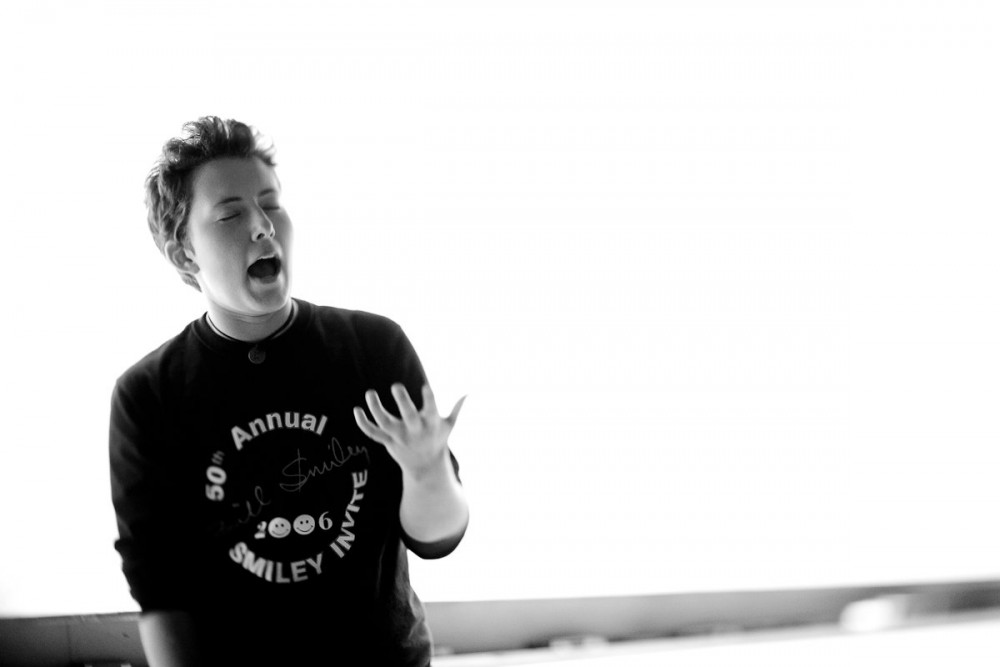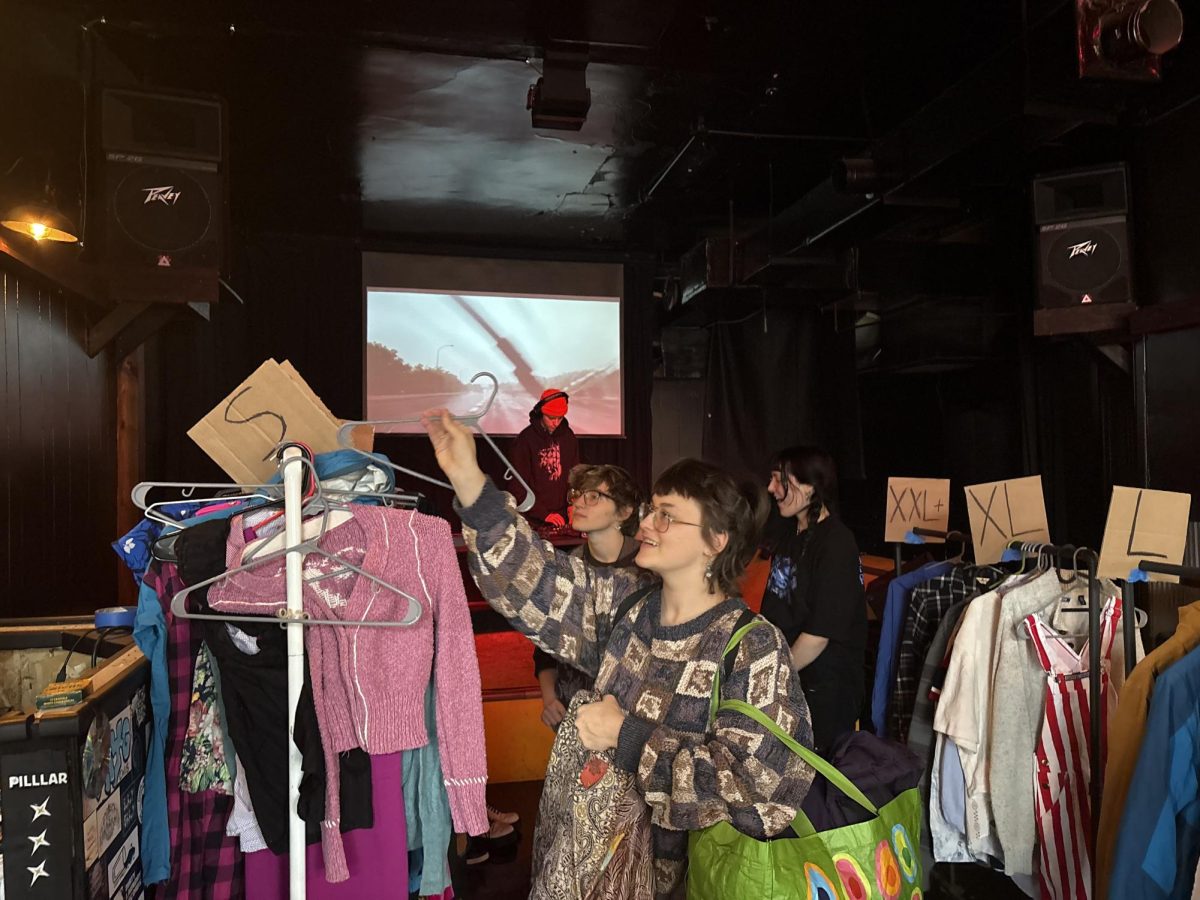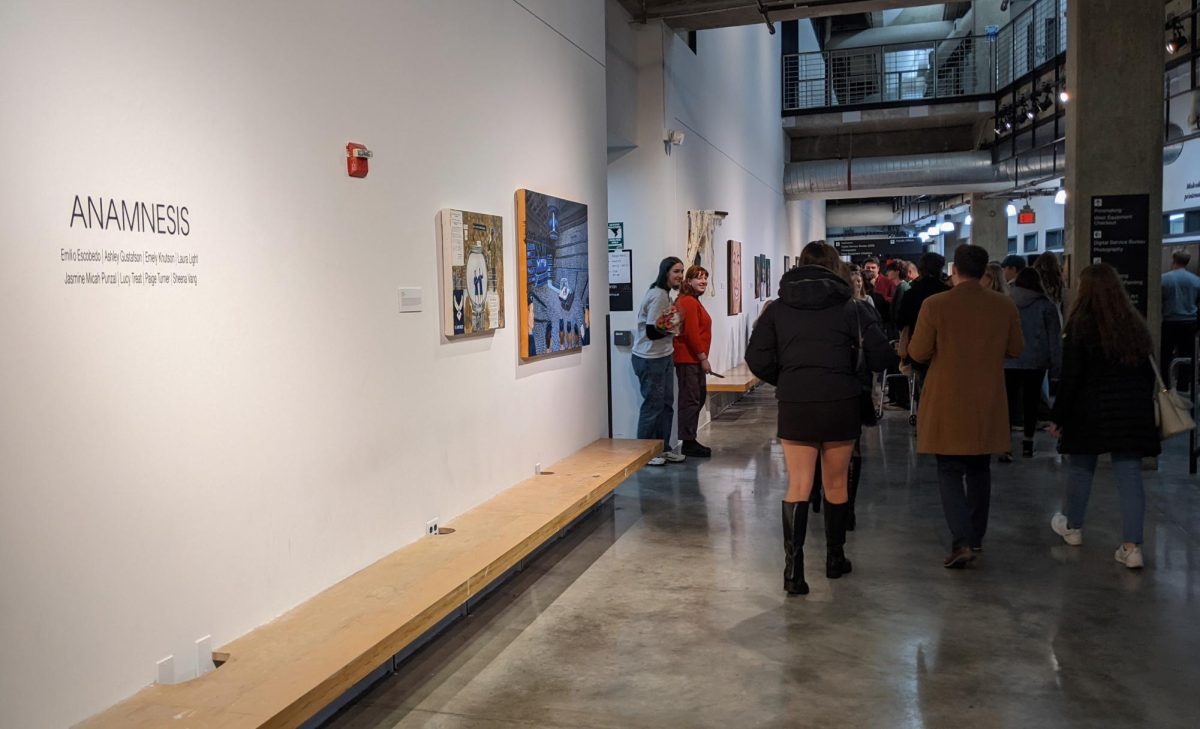Miles Walser was finishing the final semester of his undergraduate career at the University of Minnesota when he got the news.
Months before, Walser entered a poetry competition with Write Bloody Publishing, the winners of which would receive a publishing deal with the company.
In April of last year, Walser found out that he had qualified as a finalist in the competition and was commissioned to write a 40-poem manuscript. The only catch?
He had three weeks to submit it.
“I said to my parents, ‘I promise you I will not flunk out of college this semester, but I cannot promise you anything better than that,’ Walser said. “I just had to dive in. I forced myself to write about things I’d been avoiding writing about. In those three weeks, there was no more time to wait.”
The Madison, Wis., native took those 21 days and earned a win. After months of editing, the release of his first collection of work, “What the Night Demands,” is finally happening.
“It is a look at a lot of boxes and binaries that we decide exist within ourselves,” he said, “and how we can bring forth the idea of identities that can coexist and how we can break down binaries you get trapped into.”
The collection deals with Walser’s struggles in owning his identity as a transsexual man. Primarily a slam poet, Walser’s pieces are lyrical and confessional, favoring fluid language and punctuated rhythms to get their messages across.
Walser will be putting these autobiographical poems into performance on his upcoming book tour, which slaps an additional layer of vulnerability on to the content.
“There are absolutely moments of hesitance. I was lucky. I grew up in a very accepting community and then went to Minneapolis,” he said. “It was a very safe space for me to come into that identity as a performer and as a human being.”
“What the Night Demands” is something of an anomaly in the poetry world due to its detailed accounts of trans experiences. In a community that hasn’t yet begun to see these ideologies represented in published work, Walser is happy to be a pioneer for voicing the issues.
“I think they’re opening up to trans narratives,” he said. “Poetry is expanding to encompass a larger breadth of the population.”
In his years of performing at slams, Walser noticed his unique perspective had a palpable effect on his audience as well.
“I often feel odd by how often folks approach me and say, ‘That meant a lot to me to hear that, you don’t know how much I related to that poem,’ he said.
Inciting empathy and sharing meaningful stories is Walser’s main goal. He hopes to accomplish that in more than one way in his collection by avoiding a sole focus on his struggles.
“I write a lot about feeling marginalized and oppressed as a trans person, but I also try to write about being a man and being fairly privileged and fortunate,” he said. “I try to hold all of those things within the same body of poems and acknowledge that they’re all combined.”
It’s a simple and difficult objective that has resonated throughout Walser’s work as a writer and as a person. The poet’s future entails not only more publishing but hopefully an active role as a teacher as well as a performer.
“I love doing creative writing work with young people,” he said, “so I hope I get more opportunities to be a visiting artist and to create curriculum around performance poetry and writing.”
Walser will head out on a year-long U.S. tour later this year to promote “What the Night Demands,” and after that, he isn’t sure what’s next. The only certainty he endorses is that he’ll keep writing and try to come closer to fulfilling his definition of what a poem is.
“Poetry is a necessary answer to the seemingly hopeless question of what it is to be a living, breathing human being in the world,” he said.











